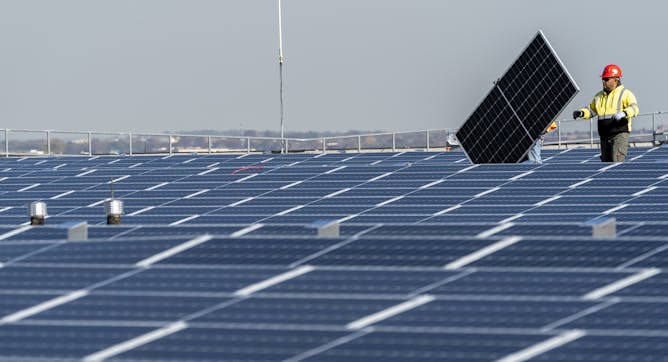|
Signalling status or earning capacity in relationships or social circles isn’t uncommon — even animals try to show off to attract mates.
But in an era of social media influencers peddling luxury goods and high-end retailers suggesting their products can help foster true love, showing off has found a financial expression in younger generations. Young adults are increasingly associating luxury experiences and goods with both love and a unique form of personal expression — but they’re accumulating debt as they do so.
Today in The Conversation Canada, Omar H. Fares and Seung Hwan (Mark) Lee of Toronto Metropolitan University look into the troubling trend.
They write: “While luxury can certainly add to the romance, it’s important for younger generations to see the difference between flashy things and the deep, lasting connections that bring us closer to love.”
Also today:
All the best.
|

Are you looking for love in all the wrong places?
(Shutterstock)
Omar H. Fares, Toronto Metropolitan University; Seung Hwan (Mark) Lee, Toronto Metropolitan University
Genuine love holds immeasurable value, yet discovering it can pose challenges — and come with a significant price tag.
|

Halifax’s Cogswell Street Interchange, built in 1969, is being redeveloped into a mixed-use residential district.
THE CANADIAN PRESS/Andrew Vaughan
Christine Hempel, Toronto Metropolitan University
African Nova Scotians have historically suffered the negative consequences of urban redevelopment. New projects in Halifax must involve genuine engagement with racialized communities.
|

A new mood tracker will ask users to rate how they feel both daily and in random moments.
(Shutterstock)
Owen Chevalier, Western University
New features on Apple iOS 17 aim to give users insights into their mental health, but they may also shape how people see themselves.
|

An ambitious clean energy transition requires more of the metals and minerals used to build clean energy technologies.
(AP Photo/Mary Altaffer)
Serasu Duran, University of Calgary; Atalay Atasu, INSEAD; Clara Carrera, INSEAD
The demand for the minerals needed to build clean energy technology currently exceeds the available supply. If this issue continues, governments may find it hard to reach their clean energy targets.
|

Les facteurs de risque modifiables de la démence sont l'hypertension artérielle, l'obésité, la sédentarité, le diabète, le tabagisme, la consommation excessive d'alcool et le manque de contacts sociaux.
(Shutterstock)
Stefanie Tremblay, Concordia University
En encourageant les gens à être physiquement, mentalement et socialement actifs, nous pouvons potentiellement prévenir un nombre important de cas de démence.
|
Arts
|
-
Warwick Frost, La Trobe University
This year’s Burning Man Festival in Nevada has been washed out and 70,000 attendees are stuck in the mud.
|
|
Culture + Society
|
-
Catharine Titi, Université Paris 2 Panthéon-Assas
From ill-thought renovation schemes to the latest row over the repatriation of the Parthenon marbles, this is not the first time the British Museum reckons with a custodianship crisis.
|
|
Politics
|
-
Tom Harper, University of East London
China’s president Xi Jinping is testing out a “softer” foreign policy approach.
|
|